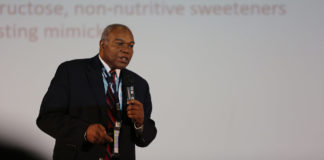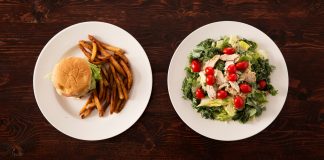Worse than death: depression; worse than depression: being judged for it
The latest global statistics on the incidence of depression indicate that more than 300 million people of all ages suffer from this disorder, out of the 7.6 billion people on the planet. This means that about 4% of the world’s population suffers from depression.
Vitamins, explained from A to K
We all know that vitamins are good for us. Many of us take supplements to boost the supply of vitamins in our bodies. However, it wasn’t until 1912 that Polish biochemist Casimir Funk actually came up with the concept of vitamins, which he called "vital amines."
A rapid test concerning COVID-19 and religious freedom
At the heart of Religious Liberty is the issue of worship. Religious Liberty is the freedom to worship according to one’s own conscience.
#SELFCARE for Christians
The concept of self care—defined as the entirety of ways in which a person understands how to solve their emotional problems and manage their anxieties—has become a real movement in the past two years with an entire industry ready to make our lives easier and more comfortable. For Christians, however, this trend has proven to be quite problematic: making our lives easier is...
Back from the brink: A doctor’s struggle with depression
Here’s a disturbing fact: Medical doctors have the highest suicide rate of any profession. It may be uncomfortable to read that in the USA nearly 400 doctors take their life every year. So how does a physician find assistance in a system that seems to be clearly failing its own? I sat down recently with Dr Charles, a fitness enthusiast, soccer fanatic and dad, to...
One of my parents has Alzheimer’s. How can I be sure I won’t be next?
Hypervigilance and fear are the most common reactions of people who have a parent (or another family member) affected by Alzheimer's disease. Although a family history of Alzheimer's increases the risk of developing the disease, the picture of risk factors proves to be much more complex, just like that of prevention.
“Don’t you have a lifestyle pill?” An interview with Dr Zeno L. Charles-Marcel
Dr Zeno L. Charles-Marcel is an associate director in the Department of Health for the General Conference of the Seventh-day Adventist Church.
From the duty to remember to the right to forget
What if we could modify or even completely erase painful, sad, or traumatic memories? While this concept currently belongs to the realm of science fiction, advances in science may soon make memory modification possible. Yet, experts remain divided on one fundamental question: could the potential benefits of altering memories outweigh the risks involved?
The dangers of excessive sleep
Numerous studies have shown the negative effects of sleep deprivation. However, the problem of excessive sleep is also something to be wary of.
COVID-19: Inequality and the pandemic
When confronted with the pandemic, we are anything but equals.
Everything natural is good. True or false?
There seems to be an obsession with the word "natural." We look for it everywhere and, if necessary, are willing to pay more for products deemed natural. If this were not the case, there would probably not be so much emphasis on advertisements and product labels that show the products' natural qualities.
Perceptions of balanced nutrition in the digital age
Attitudes toward food form a complex mosaic shaped by factors such as nutritional needs, hunger, taste preferences, socioeconomic status, demographic and emotional influences, as well as ethical, cultural, and religious values. Equally important is the level of education on nutrition (Gahagan, 2012). This plurality of factors helps explain the global diversity of dietary habits.
11 million people die each year from these nutrition mistakes
From Europe to Asia and from Africa to the Americas and Australia, none of the culinary traditions, not even those acclaimed by scientists, generate an optimal supply of nutrients. Moreover, the food we eat daily kills 11 million of us prematurely every year. So then, what should we eat?
COVID-19: Rehearsal for the big surprise
There has been a lot of speculation in the online environment about COVID-19 and the end of the world, but the connection between the two is more subtle than it first appears. It has been suggested that the pandemic is only the tip of the iceberg, that it is one of the seven last plagues of Revelation, or that it is the fourth...
COVID-19: How to stay efficient at work when your kids are near
How can one be efficient with your tasks when you no longer have an office of your own? How can one divide themselves between children, household chores and deadlines? How can one excel in their job without losing their mind or at least their patience? These are questions I had to face during the pandemic, even if working from home, around children, is...


























